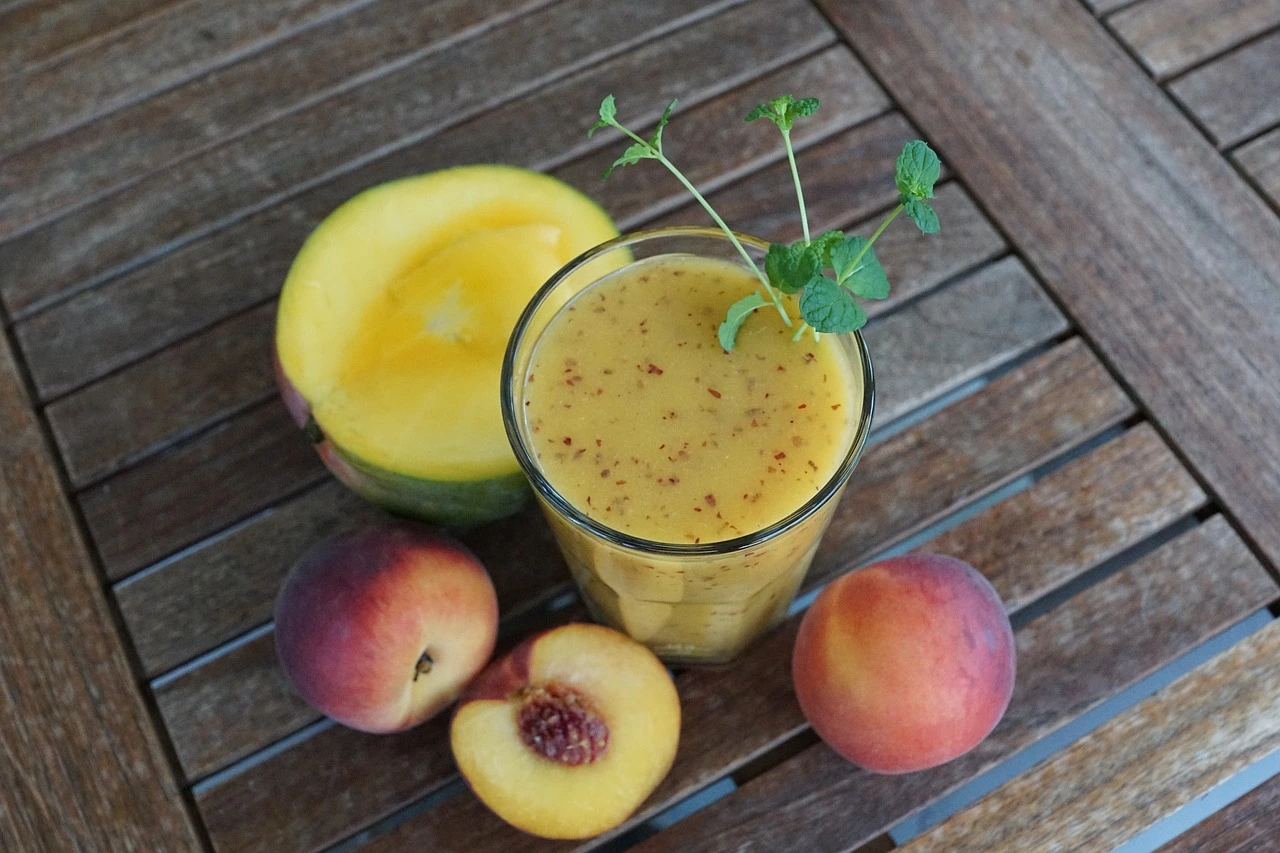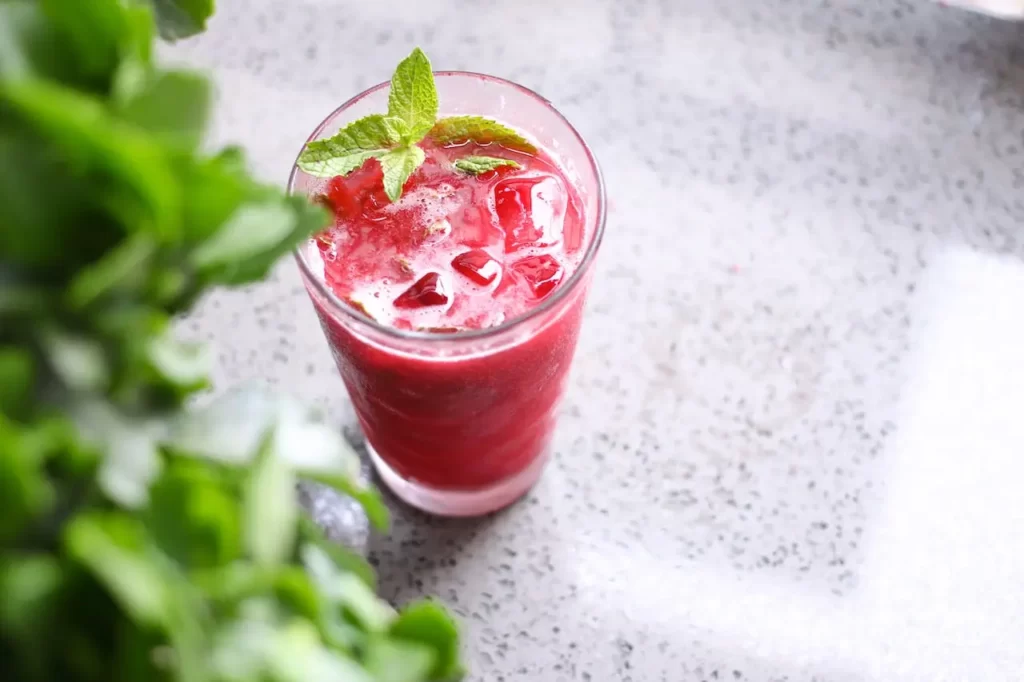Why is my Apple Juice Fizzy?

Apple juice is packed with essential nutrients like vitamin C, potassium, and antioxidants, supporting overall health. Its hydrating properties contribute to daily fluid intake, aiding in proper hydration. The antioxidants in apples, including flavonoids and polyphenols, may reduce the risk of cardiovascular diseases.
With soluble fiber, apple juice promotes digestion and a healthy gut, potentially relieving constipation. The vitamin C content boosts the immune system, helping the body fend off infections. Apple juice, being a low-calorie option, can be part of a balanced diet for weight management.
Fizzy apple juice is a result of natural fermentation, where sugars in the juice are converted into carbon dioxide and, to a small extent, alcohol by microorganisms like yeast. While some enjoy the fizzy texture, it’s essential to note that the process may also produce a minimal amount of alcohol. If you prefer non-fizzy apple juice, choose pasteurized options, store them properly, and check expiration dates.
Table of Contents
Why Apple Juice Goes Fizzy?
Apple juice is a beloved beverage enjoyed by many for its sweet and refreshing taste. However, there are instances where apple juice can surprise you with an unexpected twist – dizziness.
If you’ve ever wondered, “Why is my apple juice fizzy?” you’re not alone. we’re here to explore the possible reasons behind the fizzy surprise.
1. Natural Fermentation
One of the most common reasons for apple juice turning fizzy is natural fermentation. Apples contain natural sugars, and when the juice is exposed to air, wild yeast that may be present in the environment can initiate fermentation.
This process involves the conversion of sugars into alcohol and carbon dioxide, resulting in the characteristic fizziness. While this fermentation is typically harmless, it can catch consumers off guard.
2. Residual Yeast
Commercially produced apple juice often undergoes pasteurization to kill off any yeast and bacteria that could lead to fermentation. However, in some cases, a small amount of yeast may survive or be introduced during processing.

If conditions are favorable – such as exposure to warmth and air – the residual yeast can ferment the sugars in the juice, creating bubbles.
3. Improper Storage
The way you store your apple juice can also influence its tendency to turn fizzy. Exposure to warmth and sunlight can accelerate the fermentation process by providing an ideal environment for yeast activity.
Additionally, if the juice is not sealed properly, air can enter the container, allowing yeast to thrive and ferment the sugars.
4. Carbonation during Processing
In some cases, the fizzy sensation in apple juice may be intentional. Some producers carbonate their apple juice during processing, adding carbon dioxide to create a sparkling or fizzy product. This intentional carbonation is different from fermentation and is often indicated on the product label.
5. Spoilage
While natural fermentation is generally harmless, it’s essential to be aware of signs of spoilage. If your apple juice has an off-putting smell, an unusual color, or a sour taste, it might indicate that harmful bacteria or mold has taken hold. In such cases, it is advisable to discard the juice to avoid potential health risks.
Can You Drink Fizzy Apple Juice?
If your apple juice has become fizzy due to natural fermentation or other reasons, it’s generally safe to drink.
However, there are a few considerations to keep in mind:
1. Taste and Preference
Fizzy apple juice may have a slightly different taste compared to non-fizzy juice. Some people enjoy the effervescent quality, while others may find it undesirable.
2. Alcohol Content
In the process of fermentation, not only is carbon dioxide produced, but alcohol may also be formed in small amounts. The alcohol content in naturally fermented apple juice is usually very low, but it’s something to be aware of, especially if you have concerns about alcohol consumption.
Read More: How Much Fiber is in Apple Juice?
3. Quality and Freshness
While fizzy apple juice is not necessarily a sign of spoilage, it’s important to consider the overall quality and freshness of the juice. If the juice has an off smell, unusual color, or any signs of mold, it’s best not to consume it.
4. Health Considerations
If you have specific health concerns or dietary restrictions, it’s advisable to check the ingredients and consult with a healthcare professional if needed.
If you’re unsure about the safety or quality of the fizzy apple juice, it’s always a good idea to err on the side of caution and discard it.
How to Prevent Apple Juice From Becoming Fizzy?
Preventing apple juice from becoming fizzy requires careful handling and storage to minimize the chances of natural fermentation or the introduction of yeast. Here are some tips to help you keep your apple juice non-fizzy:
1. Check the Expiry Date
Always purchase apple juice with a reasonable shelf life and check the expiration date before buying. Fresh juice is less likely to have undergone natural fermentation.
2. Opt for Pasteurized Juice
Choose pasteurized apple juice, as pasteurization helps eliminate yeast and bacteria that could contribute to fermentation. Most commercially produced apple juices undergo pasteurization, but it’s always good to double-check the label.
3. Store in the Refrigerator
Refrigerate your apple juice promptly after opening or purchasing. Cold temperatures slow down the activity of yeast and bacteria, reducing the likelihood of fermentation. Aim to keep the juice at a consistent temperature of around 40°F (4°C).
4. Seal the Container Properly
Ensure that the container is tightly sealed after each use. Exposure to air can introduce yeast into the juice, potentially leading to fermentation. Use airtight containers or resealable caps to keep the juice fresh.
5. Avoid Sunlight and Heat
Store apple juice away from direct sunlight and heat sources. Heat can accelerate the fermentation process, so keeping the juice in a cool, dark place helps maintain its quality.
6. Consume Promptly
Consume the apple juice within a reasonable timeframe, especially if the container has been opened. The longer the juice is exposed to air, the higher the likelihood of natural fermentation occurring.
7. Choose Filtered Juice
Some commercial apple juices are filtered to remove sediment and particles, including yeast. Choosing filtered apple juice may reduce the chances of yeast being present.
8. Inspect for Spoilage
Regularly inspect the apple juice for any signs of spoilage, such as an off-putting smell, unusual color, or sour taste. If you notice any of these signs, it’s best to discard the juice.
By following these tips, you can minimize the risk of your apple juice turning fizzy and ensure a fresh and enjoyable beverage every time you reach for a glass.
Why is my Apple Juice Carbonated?
If your apple juice is carbonated and it wasn’t supposed to be, there could be a few reasons for this unexpected carbonation:
1. Fermentation
Natural sugars in the apple juice can ferment, producing carbon dioxide as a byproduct. This can happen if the juice is exposed to wild yeast or bacteria. Ensure that your apple juice is properly pasteurized and stored in a clean, airtight container to prevent unwanted fermentation.
2. Contamination
If the container or equipment used to store the apple juice was not properly cleaned and sanitized, it could introduce yeast or bacteria into the juice, leading to fermentation and carbonation.
3. Faulty Sealing
If the container used to store the apple juice has a faulty seal or is not properly sealed, carbon dioxide from the air can dissolve into the juice, creating carbonation.
4. Added Carbonation
Some apple juices are intentionally carbonated. Check the label to see if your apple juice is supposed to be carbonated. If it’s not, and you did not intentionally add carbonation, it may be a manufacturing error.
To prevent unintentional carbonation, store your apple juice in a clean, airtight container, and be mindful of the expiration date. If you suspect a manufacturing issue, contact the manufacturer for more information.
Frequently Asked Question
Does fizzy apple juice contain caffeine?
Typically, fizzy apple juice does not contain caffeine. It is a suitable option for those looking to avoid or limit their caffeine intake.
Does fizzy apple juice have the same nutritional value as regular apple juice?
Fizzy apple juice maintains the core nutritional elements of regular apple juice. However, it’s important to be aware of any additives or extra sugars that may be present in commercially available products.
Conclusion
The fizzy mystery surrounding apple juice is often linked to natural fermentation, residual yeast, improper storage, intentional carbonation, or, in rare cases, spoilage. Understanding the factors that contribute to fizzy apple juice can help you enjoy this delightful beverage without any surprises.
If you prefer a non-fizzy experience, consider storing your apple juic in a cool, dark place, and always check the product label for information on intentional carbonation. Cheers to enjoying your apple juice, with or without the fizz!